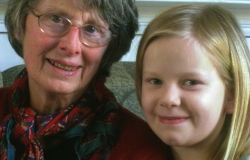Gordon Jack throws newly qualified Social Workers a lifesaver
“I think it is important for newly-qualified social workers to understand that they won’t be able to develop a successful and satisfying career, in which they can make a sustained and positive contribution to the well-being of the children and families they are working with, unless they make sure that they look after themselves.”









